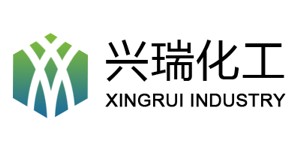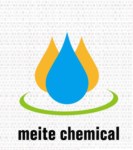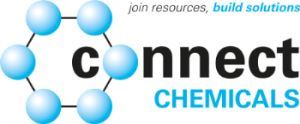|
Suppliers for CAS
2426-08-6
|
Properties | | CAS |
2426-08-6 | | Formula |
C7H14O2 | | EINECS |
219-376-4 |

|
|
27 Registered suppliers
Simagchem Corporation
P.R.China
Xiamen Hisunny Chemical Co., Ltd.
P.R.China
Molecular Formula : C7H14O2
Aecochem Corp.
P.R.China
Molecular Formula : C7H14O2
Dayang Chem (Hangzhou) Co.,Ltd.
P.R.China
Molecular Formula : C7H14O2
Sancai Industry Co.,Ltd.
P.R.China
Molecular Formula : C7H14O2
Xingrui Industry Co., Limited
P.R.China
Molecular Formula : C7H14O2
Hangzhou Meite Industry Co., Ltd (Hangzhou Meite Chemical Co., Ltd)
P.R.China
Molecular Formula : C7H14O2
Leap Chem Co., Ltd
P.R.China
Molecular Formula: C7H14O2 Molecular Weight: 130.18 Hazard Symbols: Xn,T UN Number: UN 3271 3/PG 3 WGKGermany: 2 PackingGroup: III HS Code: 29109000
More details are to be found here
Nanjing Chemical Material Corp
P.R.China
Molecular Formula: C7H14O2 Molecular Weight: 130.18 Hazard Symbols: Xn,T UN Number: UN 3271 3/PG 3 WGKGermany: 2 PackingGroup: III HS Code: 29109000
More details are to be found here
Kingreat Chemistry Company Limited
P.R.China
Molecular Formula: C7H14O2 Molecular Weight: 130.18 Hazard Symbols: Xn,T UN Number: UN 3271 3/PG 3 WGKGermany: 2 PackingGroup: III HS Code: 29109000
More details are to be found here
Connect Chemicals GmbH
Germany
EC No: 219-376-4
Industry: Resins
Synonyms:
n-BGE
VMP Chemiekontor GmbH
Germany
EC No: 219-376-4
Industry: Resins
Synonyms:
n-BGE
Fountain Biotechnology Co.,Ltd
P.R.China
EC No: 219-376-4
Industry: Resins
Synonyms:
n-BGE
Refine Chemical Co.,Ltd.
P.R.China
EC No: 219-376-4
Industry: Resins
Synonyms:
n-BGE
OPQ Chemical Co., Ltd
P.R.China
EC No: 219-376-4
Industry: Resins
Synonyms:
n-BGE
Create Chemical Co., Ltd.
P.R.China
Molecular formula: C7H14O2
Molecular weight: 130.18
Shandong Lanhai Industry Co.,Ltd.
P.R.China
Molecular formula: C7H14O2
Molecular weight: 130.18
Shandong Minglang Chemical Co., Ltd
P.R.China
Molecular formula: C7H14O2
Molecular weight: 130.18
Lori Industry Co., Ltd
P.R.China
Molecular formula: C7H14O2
Molecular weight: 130.18
Zehao Industry Co., Ltd.
P.R.China
| Appearance | CLEAR, COLOURLESS, OILY LIQUID
| | Viscosity ( 25°C, mPa·s) | ≤ 2
| | Epoxy Value (Eq/100g) | ≥ 0.65
| | Organochlorine (Eq/100g) | ≤ 0.01
| | Inorganic Chlorine (Eq/100g) | ≤ 0.001
| | Color (APHA) | ≤ 10
| | Moisture (%) | ≤ 0.1 |
| Appearance | CLEAR, COLOURLESS, OILY LIQUID
| | Viscosity ( 25°C, mPa·s) | ≤ 2
| | Epoxy Value (Eq/100g) | ≥ 0.65
| | Organochlorine (Eq/100g) | ≤ 0.01
| | Inorganic Chlorine (Eq/100g) | ≤ 0.001
| | Color (APHA) | ≤ 10
| | Moisture (%) | ≤ 0.1 |
Xiamen Equation Chemical Co.,Ltd
P.R.China
| Appearance | CLEAR, COLOURLESS, OILY LIQUID
| | Viscosity ( 25°C, mPa·s) | ≤ 2
| | Epoxy Value (Eq/100g) | ≥ 0.65
| | Organochlorine (Eq/100g) | ≤ 0.01
| | Inorganic Chlorine (Eq/100g) | ≤ 0.001
| | Color (APHA) | ≤ 10
| | Moisture (%) | ≤ 0.1 |
AK Scientific, Inc.
USA
| Appearance | CLEAR, COLOURLESS, OILY LIQUID
| | Viscosity ( 25°C, mPa·s) | ≤ 2
| | Epoxy Value (Eq/100g) | ≥ 0.65
| | Organochlorine (Eq/100g) | ≤ 0.01
| | Inorganic Chlorine (Eq/100g) | ≤ 0.001
| | Color (APHA) | ≤ 10
| | Moisture (%) | ≤ 0.1 |
Chemos GmbH & Co. KG
Germany
| Appearance | CLEAR, COLOURLESS, OILY LIQUID
| | Viscosity ( 25°C, mPa·s) | ≤ 2
| | Epoxy Value (Eq/100g) | ≥ 0.65
| | Organochlorine (Eq/100g) | ≤ 0.01
| | Inorganic Chlorine (Eq/100g) | ≤ 0.001
| | Color (APHA) | ≤ 10
| | Moisture (%) | ≤ 0.1 |
BuGuCh & Partners
Germany
| Appearance | CLEAR, COLOURLESS, OILY LIQUID
| | Viscosity ( 25°C, mPa·s) | ≤ 2
| | Epoxy Value (Eq/100g) | ≥ 0.65
| | Organochlorine (Eq/100g) | ≤ 0.01
| | Inorganic Chlorine (Eq/100g) | ≤ 0.001
| | Color (APHA) | ≤ 10
| | Moisture (%) | ≤ 0.1 |
English name:Butyl glycidyl ether
Synonyms:1-N-BUTOXY-2,3-EPOXYPROPANE;2,3-EPOXYPROPYL BUTYL ETHER;2-BUTOXYMETHYL-OXIRANE;1-BUTOXY-2,3-EPOXYPROPANE;1,2-EPOXY-3-BUTOXYPROPANE;GLYCIDOL BUTYL ETHER;GLYCIDYL BUTYL ETHER;GLYCIDYL N-BUTYL ETHER
CAS:2426-08-6
Molecular formula:C7H14O2
Molecular Weight:130.18
Boiling point:164-166 °C(lit.)
Density:0.91 g/mL at 25 °C(lit.)
Refractive index:n20/D 1.418(lit.)
Flash point:132 °F
Water solubility:2 g/100 mL
BRN:103668
Stability:Stable. May form explosive peroxides on contact with air. Store under inert gas.
Chemical properties: yellow transparent liquid, with special smell. Soluble in ethanol, acetone and benzene and other organic solvents.
Properties: ① epoxy reactive diluent with a light color, low viscosity, with a variety of epoxy resin has good compatibility. In the epoxy resin formulations used in this product can significantly reduce the viscosity formula to improve its processing technology;
② This product contains active epoxy can be involved in curing reaction, no volatile matter produced, effectively improve the operating environment and product performance, in addition to play the role of dilution can also increase the flexibility of the cured product.
Uses: As epoxy reactive diluent, can be widely used in electronics, electrical, mechanical and electrical, mechanical industry, for potting, casting, impregnation, can also be used for adhesives, used in building materials, jewelry, floor And other industries.
Usage:
1. Epoxy resin reactive diluent, toughening effect, but also as a stabilizer of PVC and plasticizer
2. The product can be used for bisphenol A epoxy resin reactive diluent. Toxic small, easy to use. And can improve the performance of some resin hardening, such as impact strength.
3. Used as a reactive diluent
4. Mainly for the synthesis of isobutyrate products, its varieties of up to hundreds of species. The main ester products are methyl isobutyrate, propyl ester, isoamyl
Brief manufacture process:
The butanol and epichlorohydrin were synthesized by two steps reaction. The specific process is: 267kg butanol and 32kg concentrated sulfuric acid concentration of 96% into the reactor, stirring, heating to 55 ° C, dropping epichlorohydrin 324kg, temperature control in 55-60 ° C about 4h plus finished, and then in the 60-65 ℃ heat preservation 2h. Then, the mixture was cooled to 45 ° C and a mixture of tin tetrachloride and butanol was slowly added (5 kg of tin tetrachloride was dissolved in 5 kg of butanol), and the reaction was further incubated at 60-65 ° C for 4 h. After the reaction, The unreacted epichlorohydrin and butanol were distilled off until the temperature reached 85-95 ° C and the degree of vacuum was 93.1 kPa without epichlorohydrin and butanol distilled off. To give epichlorohydrin butyl ether. The reaction of the material cooled to 30-35 ° C, dropping concentration of 30% sodium hydroxide 432kg, about 4h plus finished, and then heated to 35-40 ° C and heat reaction 3h, then add pure benzene under stirring, warming to put The brine and alkaline water are removed and then washed with water to a pH of about 6.5-7. Let wash water, temperature and pressure benzene, until the liquid temperature reached 140 ℃, and then cooling the discharge. The overall yield in two steps was about 95% based on butanol.
English name:Butyl glycidyl ether
Synonyms:1-N-BUTOXY-2,3-EPOXYPROPANE;2,3-EPOXYPROPYL BUTYL ETHER;2-BUTOXYMETHYL-OXIRANE;1-BUTOXY-2,3-EPOXYPROPANE;1,2-EPOXY-3-BUTOXYPROPANE;GLYCIDOL BUTYL ETHER;GLYCIDYL BUTYL ETHER;GLYCIDYL N-BUTYL ETHER
CAS:2426-08-6
Molecular formula:C7H14O2
Molecular Weight:130.18
Boiling point:164-166 °C(lit.)
Density:0.91 g/mL at 25 °C(lit.)
Refractive index:n20/D 1.418(lit.)
Flash point:132 °F
Water solubility:2 g/100 mL
BRN:103668
Stability:Stable. May form explosive peroxides on contact with air. Store under inert gas.
Chemical properties: yellow transparent liquid, with special smell. Soluble in ethanol, acetone and benzene and other organic solvents.
Properties: ① epoxy reactive diluent with a light color, low viscosity, with a variety of epoxy resin has good compatibility. In the epoxy resin formulations used in this product can significantly reduce the viscosity formula to improve its processing technology;
② This product contains active epoxy can be involved in curing reaction, no volatile matter produced, effectively improve the operating environment and product performance, in addition to play the role of dilution can also increase the flexibility of the cured product.
Uses: As epoxy reactive diluent, can be widely used in electronics, electrical, mechanical and electrical, mechanical industry, for potting, casting, impregnation, can also be used for adhesives, used in building materials, jewelry, floor And other industries.
Usage:
1. Epoxy resin reactive diluent, toughening effect, but also as a stabilizer of PVC and plasticizer
2. The product can be used for bisphenol A epoxy resin reactive diluent. Toxic small, easy to use. And can improve the performance of some resin hardening, such as impact strength.
3. Used as a reactive diluent
4. Mainly for the synthesis of isobutyrate products, its varieties of up to hundreds of species. The main ester products are methyl isobutyrate, propyl ester, isoamyl
Brief manufacture process:
The butanol and epichlorohydrin were synthesized by two steps reaction. The specific process is: 267kg butanol and 32kg concentrated sulfuric acid concentration of 96% into the reactor, stirring, heating to 55 ° C, dropping epichlorohydrin 324kg, temperature control in 55-60 ° C about 4h plus finished, and then in the 60-65 ℃ heat preservation 2h. Then, the mixture was cooled to 45 ° C and a mixture of tin tetrachloride and butanol was slowly added (5 kg of tin tetrachloride was dissolved in 5 kg of butanol), and the reaction was further incubated at 60-65 ° C for 4 h. After the reaction, The unreacted epichlorohydrin and butanol were distilled off until the temperature reached 85-95 ° C and the degree of vacuum was 93.1 kPa without epichlorohydrin and butanol distilled off. To give epichlorohydrin butyl ether. The reaction of the material cooled to 30-35 ° C, dropping concentration of 30% sodium hydroxide 432kg, about 4h plus finished, and then heated to 35-40 ° C and heat reaction 3h, then add pure benzene under stirring, warming to put The brine and alkaline water are removed and then washed with water to a pH of about 6.5-7. Let wash water, temperature and pressure benzene, until the liquid temperature reached 140 ℃, and then cooling the discharge. The overall yield in two steps was about 95% based on butanol.
English name:Butyl glycidyl ether
Synonyms:1-N-BUTOXY-2,3-EPOXYPROPANE;2,3-EPOXYPROPYL BUTYL ETHER;2-BUTOXYMETHYL-OXIRANE;1-BUTOXY-2,3-EPOXYPROPANE;1,2-EPOXY-3-BUTOXYPROPANE;GLYCIDOL BUTYL ETHER;GLYCIDYL BUTYL ETHER;GLYCIDYL N-BUTYL ETHER
CAS:2426-08-6
Molecular formula:C7H14O2
Molecular Weight:130.18
Boiling point:164-166 °C(lit.)
Density:0.91 g/mL at 25 °C(lit.)
Refractive index:n20/D 1.418(lit.)
Flash point:132 °F
Water solubility:2 g/100 mL
BRN:103668
Stability:Stable. May form explosive peroxides on contact with air. Store under inert gas.
Chemical properties: yellow transparent liquid, with special smell. Soluble in ethanol, acetone and benzene and other organic solvents.
Properties: ① epoxy reactive diluent with a light color, low viscosity, with a variety of epoxy resin has good compatibility. In the epoxy resin formulations used in this product can significantly reduce the viscosity formula to improve its processing technology;
② This product contains active epoxy can be involved in curing reaction, no volatile matter produced, effectively improve the operating environment and product performance, in addition to play the role of dilution can also increase the flexibility of the cured product.
Uses: As epoxy reactive diluent, can be widely used in electronics, electrical, mechanical and electrical, mechanical industry, for potting, casting, impregnation, can also be used for adhesives, used in building materials, jewelry, floor And other industries.
Usage:
1. Epoxy resin reactive diluent, toughening effect, but also as a stabilizer of PVC and plasticizer
2. The product can be used for bisphenol A epoxy resin reactive diluent. Toxic small, easy to use. And can improve the performance of some resin hardening, such as impact strength.
3. Used as a reactive diluent
4. Mainly for the synthesis of isobutyrate products, its varieties of up to hundreds of species. The main ester products are methyl isobutyrate, propyl ester, isoamyl
Brief manufacture process:
The butanol and epichlorohydrin were synthesized by two steps reaction. The specific process is: 267kg butanol and 32kg concentrated sulfuric acid concentration of 96% into the reactor, stirring, heating to 55 ° C, dropping epichlorohydrin 324kg, temperature control in 55-60 ° C about 4h plus finished, and then in the 60-65 ℃ heat preservation 2h. Then, the mixture was cooled to 45 ° C and a mixture of tin tetrachloride and butanol was slowly added (5 kg of tin tetrachloride was dissolved in 5 kg of butanol), and the reaction was further incubated at 60-65 ° C for 4 h. After the reaction, The unreacted epichlorohydrin and butanol were distilled off until the temperature reached 85-95 ° C and the degree of vacuum was 93.1 kPa without epichlorohydrin and butanol distilled off. To give epichlorohydrin butyl ether. The reaction of the material cooled to 30-35 ° C, dropping concentration of 30% sodium hydroxide 432kg, about 4h plus finished, and then heated to 35-40 ° C and heat reaction 3h, then add pure benzene under stirring, warming to put The brine and alkaline water are removed and then washed with water to a pH of about 6.5-7. Let wash water, temperature and pressure benzene, until the liquid temperature reached 140 ℃, and then cooling the discharge. The overall yield in two steps was about 95% based on butanol.
Sachem, Inc.
USA
English name:Butyl glycidyl ether
Synonyms:1-N-BUTOXY-2,3-EPOXYPROPANE;2,3-EPOXYPROPYL BUTYL ETHER;2-BUTOXYMETHYL-OXIRANE;1-BUTOXY-2,3-EPOXYPROPANE;1,2-EPOXY-3-BUTOXYPROPANE;GLYCIDOL BUTYL ETHER;GLYCIDYL BUTYL ETHER;GLYCIDYL N-BUTYL ETHER
CAS:2426-08-6
Molecular formula:C7H14O2
Molecular Weight:130.18
Boiling point:164-166 °C(lit.)
Density:0.91 g/mL at 25 °C(lit.)
Refractive index:n20/D 1.418(lit.)
Flash point:132 °F
Water solubility:2 g/100 mL
BRN:103668
Stability:Stable. May form explosive peroxides on contact with air. Store under inert gas.
Chemical properties: yellow transparent liquid, with special smell. Soluble in ethanol, acetone and benzene and other organic solvents.
Properties: ① epoxy reactive diluent with a light color, low viscosity, with a variety of epoxy resin has good compatibility. In the epoxy resin formulations used in this product can significantly reduce the viscosity formula to improve its processing technology;
② This product contains active epoxy can be involved in curing reaction, no volatile matter produced, effectively improve the operating environment and product performance, in addition to play the role of dilution can also increase the flexibility of the cured product.
Uses: As epoxy reactive diluent, can be widely used in electronics, electrical, mechanical and electrical, mechanical industry, for potting, casting, impregnation, can also be used for adhesives, used in building materials, jewelry, floor And other industries.
Usage:
1. Epoxy resin reactive diluent, toughening effect, but also as a stabilizer of PVC and plasticizer
2. The product can be used for bisphenol A epoxy resin reactive diluent. Toxic small, easy to use. And can improve the performance of some resin hardening, such as impact strength.
3. Used as a reactive diluent
4. Mainly for the synthesis of isobutyrate products, its varieties of up to hundreds of species. The main ester products are methyl isobutyrate, propyl ester, isoamyl
Brief manufacture process:
The butanol and epichlorohydrin were synthesized by two steps reaction. The specific process is: 267kg butanol and 32kg concentrated sulfuric acid concentration of 96% into the reactor, stirring, heating to 55 ° C, dropping epichlorohydrin 324kg, temperature control in 55-60 ° C about 4h plus finished, and then in the 60-65 ℃ heat preservation 2h. Then, the mixture was cooled to 45 ° C and a mixture of tin tetrachloride and butanol was slowly added (5 kg of tin tetrachloride was dissolved in 5 kg of butanol), and the reaction was further incubated at 60-65 ° C for 4 h. After the reaction, The unreacted epichlorohydrin and butanol were distilled off until the temperature reached 85-95 ° C and the degree of vacuum was 93.1 kPa without epichlorohydrin and butanol distilled off. To give epichlorohydrin butyl ether. The reaction of the material cooled to 30-35 ° C, dropping concentration of 30% sodium hydroxide 432kg, about 4h plus finished, and then heated to 35-40 ° C and heat reaction 3h, then add pure benzene under stirring, warming to put The brine and alkaline water are removed and then washed with water to a pH of about 6.5-7. Let wash water, temperature and pressure benzene, until the liquid temperature reached 140 ℃, and then cooling the discharge. The overall yield in two steps was about 95% based on butanol.
Merck Schuchardt OHG
Germany
English name:Butyl glycidyl ether
Synonyms:1-N-BUTOXY-2,3-EPOXYPROPANE;2,3-EPOXYPROPYL BUTYL ETHER;2-BUTOXYMETHYL-OXIRANE;1-BUTOXY-2,3-EPOXYPROPANE;1,2-EPOXY-3-BUTOXYPROPANE;GLYCIDOL BUTYL ETHER;GLYCIDYL BUTYL ETHER;GLYCIDYL N-BUTYL ETHER
CAS:2426-08-6
Molecular formula:C7H14O2
Molecular Weight:130.18
Boiling point:164-166 °C(lit.)
Density:0.91 g/mL at 25 °C(lit.)
Refractive index:n20/D 1.418(lit.)
Flash point:132 °F
Water solubility:2 g/100 mL
BRN:103668
Stability:Stable. May form explosive peroxides on contact with air. Store under inert gas.
Chemical properties: yellow transparent liquid, with special smell. Soluble in ethanol, acetone and benzene and other organic solvents.
Properties: ① epoxy reactive diluent with a light color, low viscosity, with a variety of epoxy resin has good compatibility. In the epoxy resin formulations used in this product can significantly reduce the viscosity formula to improve its processing technology;
② This product contains active epoxy can be involved in curing reaction, no volatile matter produced, effectively improve the operating environment and product performance, in addition to play the role of dilution can also increase the flexibility of the cured product.
Uses: As epoxy reactive diluent, can be widely used in electronics, electrical, mechanical and electrical, mechanical industry, for potting, casting, impregnation, can also be used for adhesives, used in building materials, jewelry, floor And other industries.
Usage:
1. Epoxy resin reactive diluent, toughening effect, but also as a stabilizer of PVC and plasticizer
2. The product can be used for bisphenol A epoxy resin reactive diluent. Toxic small, easy to use. And can improve the performance of some resin hardening, such as impact strength.
3. Used as a reactive diluent
4. Mainly for the synthesis of isobutyrate products, its varieties of up to hundreds of species. The main ester products are methyl isobutyrate, propyl ester, isoamyl
Brief manufacture process:
The butanol and epichlorohydrin were synthesized by two steps reaction. The specific process is: 267kg butanol and 32kg concentrated sulfuric acid concentration of 96% into the reactor, stirring, heating to 55 ° C, dropping epichlorohydrin 324kg, temperature control in 55-60 ° C about 4h plus finished, and then in the 60-65 ℃ heat preservation 2h. Then, the mixture was cooled to 45 ° C and a mixture of tin tetrachloride and butanol was slowly added (5 kg of tin tetrachloride was dissolved in 5 kg of butanol), and the reaction was further incubated at 60-65 ° C for 4 h. After the reaction, The unreacted epichlorohydrin and butanol were distilled off until the temperature reached 85-95 ° C and the degree of vacuum was 93.1 kPa without epichlorohydrin and butanol distilled off. To give epichlorohydrin butyl ether. The reaction of the material cooled to 30-35 ° C, dropping concentration of 30% sodium hydroxide 432kg, about 4h plus finished, and then heated to 35-40 ° C and heat reaction 3h, then add pure benzene under stirring, warming to put The brine and alkaline water are removed and then washed with water to a pH of about 6.5-7. Let wash water, temperature and pressure benzene, until the liquid temperature reached 140 ℃, and then cooling the discharge. The overall yield in two steps was about 95% based on butanol.
Santa Cruz Biotechnology, Inc.
USA
English name:Butyl glycidyl ether
Synonyms:1-N-BUTOXY-2,3-EPOXYPROPANE;2,3-EPOXYPROPYL BUTYL ETHER;2-BUTOXYMETHYL-OXIRANE;1-BUTOXY-2,3-EPOXYPROPANE;1,2-EPOXY-3-BUTOXYPROPANE;GLYCIDOL BUTYL ETHER;GLYCIDYL BUTYL ETHER;GLYCIDYL N-BUTYL ETHER
CAS:2426-08-6
Molecular formula:C7H14O2
Molecular Weight:130.18
Boiling point:164-166 °C(lit.)
Density:0.91 g/mL at 25 °C(lit.)
Refractive index:n20/D 1.418(lit.)
Flash point:132 °F
Water solubility:2 g/100 mL
BRN:103668
Stability:Stable. May form explosive peroxides on contact with air. Store under inert gas.
Chemical properties: yellow transparent liquid, with special smell. Soluble in ethanol, acetone and benzene and other organic solvents.
Properties: ① epoxy reactive diluent with a light color, low viscosity, with a variety of epoxy resin has good compatibility. In the epoxy resin formulations used in this product can significantly reduce the viscosity formula to improve its processing technology;
② This product contains active epoxy can be involved in curing reaction, no volatile matter produced, effectively improve the operating environment and product performance, in addition to play the role of dilution can also increase the flexibility of the cured product.
Uses: As epoxy reactive diluent, can be widely used in electronics, electrical, mechanical and electrical, mechanical industry, for potting, casting, impregnation, can also be used for adhesives, used in building materials, jewelry, floor And other industries.
Usage:
1. Epoxy resin reactive diluent, toughening effect, but also as a stabilizer of PVC and plasticizer
2. The product can be used for bisphenol A epoxy resin reactive diluent. Toxic small, easy to use. And can improve the performance of some resin hardening, such as impact strength.
3. Used as a reactive diluent
4. Mainly for the synthesis of isobutyrate products, its varieties of up to hundreds of species. The main ester products are methyl isobutyrate, propyl ester, isoamyl
Brief manufacture process:
The butanol and epichlorohydrin were synthesized by two steps reaction. The specific process is: 267kg butanol and 32kg concentrated sulfuric acid concentration of 96% into the reactor, stirring, heating to 55 ° C, dropping epichlorohydrin 324kg, temperature control in 55-60 ° C about 4h plus finished, and then in the 60-65 ℃ heat preservation 2h. Then, the mixture was cooled to 45 ° C and a mixture of tin tetrachloride and butanol was slowly added (5 kg of tin tetrachloride was dissolved in 5 kg of butanol), and the reaction was further incubated at 60-65 ° C for 4 h. After the reaction, The unreacted epichlorohydrin and butanol were distilled off until the temperature reached 85-95 ° C and the degree of vacuum was 93.1 kPa without epichlorohydrin and butanol distilled off. To give epichlorohydrin butyl ether. The reaction of the material cooled to 30-35 ° C, dropping concentration of 30% sodium hydroxide 432kg, about 4h plus finished, and then heated to 35-40 ° C and heat reaction 3h, then add pure benzene under stirring, warming to put The brine and alkaline water are removed and then washed with water to a pH of about 6.5-7. Let wash water, temperature and pressure benzene, until the liquid temperature reached 140 ℃, and then cooling the discharge. The overall yield in two steps was about 95% based on butanol.
|
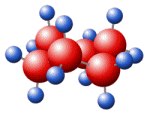


 details
details details
details details
details

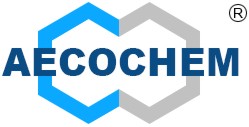
_Co_Ltd_1_575.jpg)

